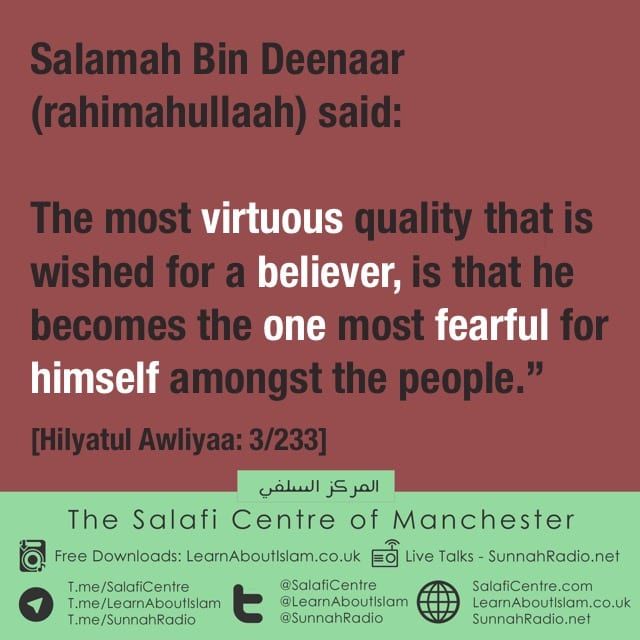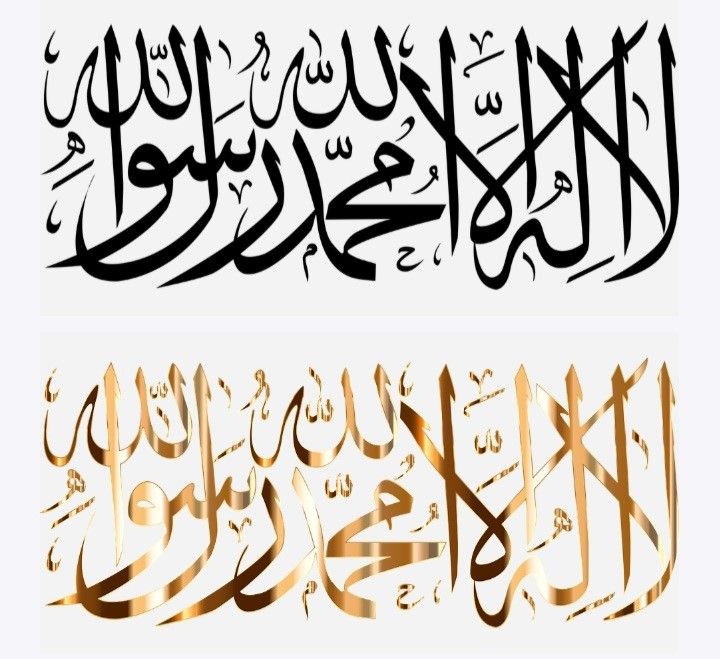In The Name of Allah, The Most Merciful, The Bestower of Mercy.
Al-Allamah Rabee Bin Hadi Al-Mad’khali, may Allah preserve him, was asked: Which books do you advise the student of knowledge to read-those that give special attention in making clear the Salafi Methodology for him?
Response: Firstly, I advise myself and my brothers (to concentrate on memorising and studying) the Book of Allah, The Mighty and Majestic, for in it is guidance and light. It is the main foundation of Islam and the Sunnah is its explanation and clarification. Thereafter, study the guidance of Allah’s Messenger, peace and blessings of Allah be upon him, from the Saheehayn [Al-Bukhaari and Muslim], the four Sunan [Abu Dawud, Ibn Majah, at-Tirmidhi and An-Nasa’i], the Masaaneed [Musnad Ahmad and others], the Jawami (see footnote a) and other than them.
I advise the students of knowledge to study these three Books of the Sunnah that have been (transmitted) with authenticity from Allah’s Messenger, peace and blessings of Allah be upon him, and that they study some sections in these Ummahaat [i.e. in Bukhaari, Muslim, Nasaa’ee, Abu Dawood, Tirmidhee, Ibn Maajah] and firmly concentrate on them in particular. This is because they are connected to the fundamental principles of the religion, such as kitab Al-Ilm [the Book of Knowledge] in Saheeh Al-Bukhaari and kitab Al-Iman because Imam Al-Bukhaari narrated – in this kitab Al-Iman- ahaadith to clarify the methodology of Ahlus Sunnah Wal Jama’ah in the subject matter of Iman, and in their chapter headings he rebutted the Murji’a- those who oppose this fundamental. He firmly placed in this great book [i.e. Saheeh Al-Bukhari] the Book of Itisam [.e. the book of holding onto the way of the Prophet], the Akhbar Al-Aahad and kitaab At-Tawheed. This is because these are connected to the fundamentals of the religion and they are very important. It is obligatory to have an understanding of them after acquiring understanding of the Book of Allah [The Most High].
Likewise, concentrate on kitab As-Sunnah in Sunan Abee Dawud because it is a very important fundamental and it agrees with Saheeh Al-Bukhari in these affairs that we have mentioned. In it is a notification about bidah-the bidah of the Jahmiyyah, the khawarij and other than them. It distinguished the Aqeedah of Ahlus Sunnah and its Madhab from the deviated Madhabs. So the fundamentals in this subject matter are to be studied.
Likewise, kitab Al-Ittiba by Ibn Maajah [i.e. adherence to the Messenger’s path] and khalq Af’aal Al-Ibaad by Al-Bukhari because through them a person becomes acquainted with great fundamentals from the fundamental principles of Ahlus Sunnah Wal Jamaa’ah regarding matters related to the Qur’an, (sound) creed, the Jahmiyyah and other than them amongst the people of bidah and misguidance. Likewise, the first section of Sharh As-Sunnah of Al-Baghawi because it concentrates on this subject matter. As-Sunnah by Al-khallaal, Sharh Usool Al-ittiqaad Ahlis Sunnah of Laalikaa’ee, Al-Hujja of Asfahaanee, Al-Ibaanah of Ibn Battah and what is similar to that.
Then the books of Shaikh Al-Islam Ibn Taymiyyah and Ibn Al-Qayyim because in them there is an unequivocal and sufficient clarification of the fundamental principles of the religion and its subsidiary affairs, and all praise is due to Allah. In these affairs of knowledge there is life [for the hearts]. Learn the Qur’an, the (sound) creed, the (sound) methodology, the (sound) fundamentals and the (sound) subsidiary issues (of the religion) in a manner as if you were acquiring them from the mouth of Allah’s Messenger, and likewise all the books we have mentioned in a manner as if you were acquiring them (directly) from the mouth of the Messenger, the Sahabah and those who followed their path. Ibn Taymiyyah did not become outstanding, vast in knowledge and well established in clarifying the truth except after learning these books. So we should study these books and these chapters from them, and may Allaah bless you.
Then we study all the Sunan. We look into the books of Fiqh, the books of Tafsir, the books of Hadeeth-all of them are beneficial; but (one gives) specific concentration to these affairs [i.e. the creed and methodology], especially in these times because many deviations are (seen from) the people of innovated thought and politics- the Soofiyyah, the Rawaafid and other than them. These innovations, deviations and trials cannot be confronted except through knowledge that is acquired properly from the book of Allah, the Sunnah of Messenger of Allaah and the understanding of the Salaf. I ask Allaah to grant us and you understanding of His Religion and “Whoever Allaah wishes good for, He gives him understanding of the religion.’ [end of quote] [An Excerpt from ‘Fataawaa Al-Mar’atil Muslimah Page: 71-72]
Imaam Muhammad Ibn Salih Al-Uthaymeen [may Allah have mercy upon him] stated in Sharh Hilyati Taalibil Ilm- [see page 77 onwards, under the section: كيفية الطلب والتلقي]– that a person should learn the Usool and establish his knowledge on sound Usool- the Qur’aan and the Sunnah etc. A person should not approach knowledge, whilst intending to acquire everything at once because that is not possible; rather one should acquire knowledge little by little. Likewise, one should not rely solely on books and his personal efforts, rather one should have a reliable Shaikh- one who is reliable in his understanding and is trustworthy- because the Shaikh who teaches you has already studied, taught, revised and understood. The Shaikh also mentioned that students have different abilities and some may be able to study more advanced books -under a Shaikh- than others. Likewise, the path followed in the path of seeking knowledge under the scholars vary depending where a person is residing and the method adopted by the scholars of that country.
[a] Aqeedah: Thalaathatul Usool, Qawaa’idul Arba’ah, Kash Ash-Shubuhaat, Kitaab At-Tawheed. Tawheed Al-Asmaa Was-Sifaat: Aqeedah Al-Waasitiyyah, then Al-Hamawiyyah and then At-Tadmuriyyah.
[b] Arabic Grammar: Al-Aajurroomiyyah, then Mulhatul I’raab’ by Al-Haraaree, then Qatr An-Nadaa’ by Ibn Hishaam and then Alfiya’ by Ibn Maalik with the explanation of Ibn Aqeel.
[c] Hadeeth: Arba’een of Imaam An-Nawawi, then Umdatul Ahkaam and then Buloogh Al-Maraam. Shaikh Uthaymeen [rahimahullaah] said he prefers that one limits himself [or herself] to Buloogh al Maraam because Umdatul Ahkaam enters Buloogh al Maraam-the majority of the ahaadeeth in Umdatul Ahkaam can be found in Buloogh Al-Maraam. If one is not able to memorise Buloogh al-Maraam, he [or she] has Umdatul Ahkaam because it is short and most of its ahaadeeth are found in Bukhaari and Muslim, so one is not burdened with checking their authenticity. Then one moves to Al-Muntaqaa’ by Ibn Taymiyyah, which is much bigger than Buloogh al-Maraam but weaker in its grading of the ahaadeeth found in it. Then one moves to the Ummahaat As-Sitta [Al-Bukhaari, Muslim, Abu Daawud, At-Tirmidhee, An-Nasaa’ee and Ibn Maajah].
[d] Mustalah: Nukhbatul Fikr and then Al-Fiyyah’ by Al-Iraaqee
[e] Fiqh: Aadaabul Mashee ilas Salaah’ by Shaikhul Islaam Muhammad Ibn Abdil Wahhaab [rahimahullaah], then Zaad Al-Mustaqni or Umdatul Fiqh, then Al-Muqni to study the difference of opinions in the madhaahib and further higher studies of this subject matter in Al-Mughnee. Order: Al-Umdah, then Al-Muqnee, then Al-Kaafee and then Al-Mughnee.
[f] Usool Al-Fiqh: Al-Waraqaat and then Rawdah An-Naadhir. But Shaikh Uthaymeen [rahmahullaah] said that there are other good and concise books on Usool al-Fiqh that can suffice a person.
[g] Tafseer: Ibn Katheer
[h] Usool At-Tafseer: Al-Muqaddimah’ by Shaikhul Islaam Ibn Taymiyyah
[i] Seerah: Mukhtasar Seerah An-Nabiy’ by Shaikhul Islaam Muhammad Ibn Abdil Wahhaab [rahimahullaah]. The source of this work is based on Ibn Hishaam’s work and Ibn Qayyim’s Zaadul Ma’aad. Zaadul Ma’aad -in particular- contains Fiqh in relation to the Seerah, in Tawheed and the deeds [acts of worship, dealings, manners, etiquetes etc] of the Prophet (sallal-laahu-alayhi-wasallam)]. [End quote]
What Some of The Students and Beginners Have Stated Regarding Their Studies
We asked some of those brothers, who are on Shaikh Khalid’s online course and whose level in the Arabic language enables them to understand the teacher as well as the text they are studying (someone who has finished Madeenah books 2 and 3), so they mentioned the following subject matters: Qur’aan memorisation, Qawaa’id Al-Arba’ah, Usool Ath-Thalaatha, Usool As-Sitta, Fiqh Muyassar, Seerah, Manhajul Anbiyaa and Mudhakkarah Al-Hadeeth An-Nabawiyyah Fil Aqeedah Wal-Itti’baa (by Allaamah Rabee Bin Bin Haadi) etc Shaikh Khaalid [may Allaah protect him] studied under Al-Allaamah Rabee [may Allaah protect him] for over 20 years, and this is the likes of that which he has set up for those on his course. Alhamdulil laah, we know some of youth have made good progress – may Allaah bless them and their parents Aameen.
Ustaadh Abu Humaid Saalim [may Allaah preserve him] stated: I heard our Shaykhs Abdullah Al-Ghudayan, Salih Al-Luhaydan and Salih Al-Fawzan and others all being asked similar questions – about what to focus on as it relates to various sciences and in particular for the beginner – does he focus on Quran first, Arabic, Aqeedah or Fiqh etc – and all had a uniformed answer: a person is to learn the fundamentals of the religion first, tawheed, aqeedah and manhaj – if he is to able to do all at same time – meaning give each science an equal amount of time – no problem – but if not, and a person has limited time/ability – then he must learn that which keeps him upright in his religion and aids him to fulfil the fundamental obligations of the religion – so he has to learn Tawheed/the pillars of Eemaan/the general beliefs of the people of Sunnah in creed – as well as after learning the meaning of the Shahaadah (which would come into the aqeedah anyway) and what it necessitates, he would also need to learn the rulings of the prayer hand in hand with his ongoing study of the Aqeedah, because that us binding upon him immediately and from the greatest of obligation upon him. Thus learning Arabic and Quran and focusing on them so much that a person neglects the above matters, is incorrect and out of place. A person can be proficient in Arabic, even born with an Arabic tongue, haafidh of Quran, yet misguided in creed and methodology. On other hand, you have a person who has zero Arabic and little Quran, yet guided and upright in Aqeedah and manhaj. So, arabic and the mere memorisation of Quran do not prevent a person from being misguided but it is the acquiring of the fundamentals, be that via English or any other language that give the person the tools to deal with doubts and fitan. Without doubt learning the other sciences should not be done at the expense of these fundamental usool. Allāh preserve our 1st teacher and our Shaykh Abū Iyyād, truly a blessing for us here in the UK and West in general. Many students have graduated and sat with numerous scholars over many years yet haven’t benefitted the English speaking Salafi communities in the West in the way he has and continues to. This is the Fadl of our Lord, He gives it to whosoever He pleases. May Allāh grant him a long life upon His Obedience and preserve him upon the Sunnah and protect him from the haters.
Shaikh Abdul Wahid Abu Khadeejah [may Allaah preserve him] said: To solidify your foundations upon Salafiyyah from day one, begin your journey with the well-known books of Aqeedah and Manhaj. Start reading and studying the following: The three fundamental principles- explanations of Al-Allaamah Ubayd Al-Jaabiri, Al-Allaamah Al-Fawzan or Imaam Muhammad Ibn Saaleh Al-Uthaymeen, alongside this, the explanation of the Creed (Sharhus Sunnah) of Imaam Al-Barbahari with explanation of Al-Allaamah Saaleh Al-Fawzaan or Al-Allaamah Rabee. Kitaab at-Tawheed: Explanation by Al-Allaamah Ahmad An-Najmi or Al-Allaamah Saaleh Al-Fawzaan, alongside this: The Foundations of the Sunnah (Usulus Sunnah)- explanation of Al-Allaamah Ahmad An-Najmi or Al-Allaamah Rabee Bin Haadi. Aqeedah Al-Wasitiyyah- explanation by Imaam Muhammad Ibn Saaleh Al-Uthaymeen, alongside this to strengthen your methodology regarding the call of the Prophets, Manhaj Al-Anbiya Fid Dawah ilallaah (The Methodology of The Prophets in Calling to Allaah) by Al-Allaamah Rabee Al-Madkhali (introduction by Al-Allamah Saleeh Al-Fawzaan). The audio explanations of these books taught by the scholars, students of knowledge and Shaikhs are available at salafisounds.com for free download. Alongside this, you should not neglect the Book of Allaah; read it, memorise it and understand it with a reliable Tafsir such as Ibn kathir, As-Sadi, and Ibn Uthaumeen. Also study the books of Fiqh (from a hdith perspective) such as Buloogh Al-Maraam of Ibn Hajr and Umdatul Ahkaam etc [End of quote from this booklet pages 7-8: https://abukhadeejah.com/advice-to-those-who-have-turned-to-the-way-of-the-salafand-a-weapon-in-the-hands-of-the-salafi-against-those-who-throw-doubts-at-his-methodology/
One Should Not Be Disheartened
The questioner [may Allaah bless him] said to Al-Allamah Salih Aala Ash-Shaikh [may Allah preserve him]: “I have been seeking knowledge for a number of years, but despite this, neither have I consolidated the knowledge-based information (sought after) nor am I aware of the benefit (acquired from that). What do you advise me? May Allaah reward you”.
The Shaikh replied: Do not say that you are not aware of a benefit because a student of knowledge is (considered to be engaged) in worship. The aim behind seeking knowledge is that the person receives Allah’s [The Mighty and Majestic] Pleasure.
You all know about the man who went away to repent, so the angel of death came to him (i.e. took his soul); then the angels of mercy and the angels of punishment disputed about his affair- angels of mercy said, “He came along being repentant and remorseful in his heart in the presence of Allah” but the angels of punishment said, “He has done no good at all”. Then another angel came in the form of a human being in order to decide between them and said, “Measure between the two lands” (i.e. to find out which of them he was closer to). They measured it and found him nearer to the land where he intended to go (i.e. the land of the pious people), so the angels of mercy took him. This repentant man was forgiven because his steps (towards repentance) were recorded for him; therefore the steps of a student of knowledge towards knowledge are an act of worship similar to the steps of the repentant migrator towards the land of goodness. Seeking knowledge is better for you than supererogatory prayer or some of the supererogatory acts of worship; therefore there has to be a truthful intention (behind it). Then the benefit will (be acquired) bit by bit. And the aim is not to become a scholar or a student of knowledge initially; rather the aim behind your seeking knowledge is to remove ignorance from yourself-worshiping Allah [The Mighty and Majestic] with correct acts of worship and that your Aqeedah is sound, become submissive to Allah, safeguarded from doubtful affairs that are made to resemble the truth and from seeking fame. Allah (The Most High) said:
يَوۡمَ لَا يَنفَعُ مَالٌ۬ وَلَا بَنُونَ
إِلَّا مَنۡ أَتَى ٱللَّهَ بِقَلۡبٍ۬ سَلِيمٍ۬
The Day whereon neither wealth nor sons will avail; except him who brings to Allah a clean heart [clean from Shirk (polytheism) and Nifaq (hypocrisy)].
Allah (The Mighty and Exalted) said: [إِنَّ ٱلَّذِينَ ءَامَنُواْ وَعَمِلُواْ ٱلصَّـٰلِحَـٰتِ إِنَّا لَا نُضِيعُ أَجۡرَ مَنۡ أَحۡسَنَ عَمَلاً – Verily! As for those who believe and do righteous deeds, certainly! We shall not suffer to be lost the reward of anyone who does his (righteous) deeds in the most perfect manner].
If you never benefited except yourself and your family, then there is great good in this.[الوصايا الجليّة للاستفادة من الدروس العلميّة للشيخ العلامة صالح آل الشيخ- Question 3. Page 24-25]
Finally, we remind ourselves of an important advice by Al-Allamah Rabee Bin Hadi [may Allah preserve him] when he stated as follows: When you embark on the path towards seeking knowledge- seeking (sound) understanding of it and acting upon it, this indeed is one of the signs that Allah wishes good for you. Therefore, receive glad tidings, have good thoughts about Allah and be sincere to Allah [The Blessed and Exalted] in your statements, deeds and knowledge. Neither be deceived (by yourself) – we seek Allah’s Refuge from self-deception – nor feel safe from Allah’s plan. [فَلَا يَأۡمَنُ مَڪۡرَ ٱللَّهِ إِلَّا ٱلۡقَوۡمُ ٱلۡخَـٰسِرُونَ – None feels secure from the Plan of Allah except the people who are the losers]. [ Surah Al-A’raaf. Aayah 99]
A believer always fears that his situation will change. It has been reported from Aa’isha and Anas [may Allah pleased with them] that the Messenger [peace and blessings of Allah be upon him] often (supplicated), “يَا مُقَلِّبَ الْقُلُوبِ ثَبِّتْ قَلْبِى عَلَى دِينِكَ – O turner of the hearts (Allah)! Keep my heart firm upon your religion”. I [i.e. Aa’isha or Anas] asked, “O Allah’s Messenger! We believe in you and what has been revealed to you, so do you fear for us?” He said, “Yes, indeed the hearts are between two fingers among the fingers of Allah and He turns them how He pleases”. By Allah! This is (true) understanding – that a person does not feel safe about himself, for indeed Satan flows through the human being like blood. (a) Therefore, a person should guard his heart, intellect and deeds ardently more than the (manner in which) he guards his wealth and honour. Whoever is given authority to look after his own affairs, it is obligated on him to guard his heart before everything else.
[رَبَّنَا لَا تُزِغْ قُلُوبَنَا بَعْدَ إِذْ هَدَيْتَنَا وَهَبْ لَنَا مِن لَّدُنكَ رَحْمَةً ۚ إِنَّكَ أَنتَ الْوَهَّابُ – Our Lord! Let not our hearts deviate (from the truth) after You have guided us, and grant us mercy from You. Truly, You are the Bestower]. [ Surah Aal Imraan’ Aayah 8] [An Excerpt from Marhaban Yaa Taalibal Ilm’ pages 75-76]
I warn my brothers against the Fitan (trials, temptations) and that they turn to Allah (for help) to keep them steadfast upon the Religion. They should supplicate a lot (just as Allaah taught the believers that they say),[رَبَّنَا لَا تُزِغْ قُلُوبَنَا بَعْدَ إِذْ هَدَيْتَنَا وَهَبْ لَنَا مِن لَّدُنكَ رَحْمَةً ۚ إِنَّكَ أَنتَ الْوَهَّابُ – Our Lord! Let not our hearts deviate (from the truth) after You have guided us, and grant us mercy from You. Truly, You are the Bestower]. [Surah Aal Imran’ Aayah 8]
They should make this tremendous supplication often and the supplication which Allah’s Messenger used to make often. Anas said that Allah’s Messenger used to say a lot, “O Turner of the hearts, keep my heart firm upon your religion”. So the companions said, “O Allah’s Messenger! Do you fear for us?” He said, “Yes, indeed the hearts are between two fingers from the fingers of Allah, and He turns them however He wills”.
Therefore, the believer does not feel secure from Allah’s plan. [فَلَا يَأۡمَنُ مَڪۡرَ ٱللَّهِ إِلَّا ٱلۡقَوۡمُ ٱلۡخَـٰسِرُونَ – None feels secure from the Plan of Allah except the people who are the losers]. [Surah Al-A’raaf, Aayah 99]
The believer always fears Allah – fears that Allah may not accept his deeds and he is not deceived by hope [i.e. hoping whilst not striving sincerely]. The spending carried out in the path of Allah and the strenuous effort made through acts of obedience to Allah is nothing in the eyes of the truthful believer, for they are not equal to the smallest blessing amongst the (uncountable) blessings of Allah. Allah’s Messenger said, “Glorified be You (O Allah) and free are You from all imperfections! I cannot fully praise you, for you are as you have praised yourself”. [Saheeh Muslim 486]
This was Muhammad [peace and blessings of Allah be upon him] – the one whose past and future sins were forgiven, but he feared Allah the most. He said, “I swear by Allah that I am the most fearful of Allah and the most conscious of Him than you”. He used to stand for so long that his feet became swollen. Aishah said, “O Allah’s Messenger! Why are you doing this when Allah has forgiven your past and future sins?” He said, “Should I not be a thankful slave?” [An Excerpt from Marhaban Yaa Taalibal Ilm. Pages 204-205]
—————————————————
Footnote a: The Jawaami [i.e. First category: Those books that gather different types of narrations on the subject matter of creed, rulings, affairs of the heart, manners of eating and drinking, travel, residence, subject matter of tafseer, history, affairs of trials and tribulations, signs of the hour, virtues of the companions etc]. Some Imaams who compiled these works and their titles include: Saheeh Al-Bukhaari; Saheeh Muslim; Al-Muwatta; Musnad Ahmad; Sunan An-Nasaa’ee; Sunan Abu Daawud; Sunan At-tirmidhee; Sunan Ibn Maajah; Sunan Ad-Daarimi; Saheeh Ibn Khuzaymah; Saheeh Ibn Hibbaan]; [Second category: Those are books whose authors intended to gather a large number of Prophetic Ahaadeeth, or gather Ahaadeeth of specific books, or gather different Ahaadeeth in a specific subject matter, such as ‘Jaami-ul Ahaadeeth of As-Suyooti; Jaami-ul usool Fee Ahaadeeth Ar-Rasool of Ibnul Atheer; Silsilah As-Saheehah of Albaanee; Sharh Mushkilah Al-Aathaar of Tahaawi; Al-Musnad Al-Jaami of Nawawi; Nailul Awtaar of Shawkaanee etc
NB: All these books mentioned by Al-Allamah Rabee Bin Hadee [may Allah preserve him] are to be studied under the scholars and students, and not merely reading and deriving one’s own understanding from them.







